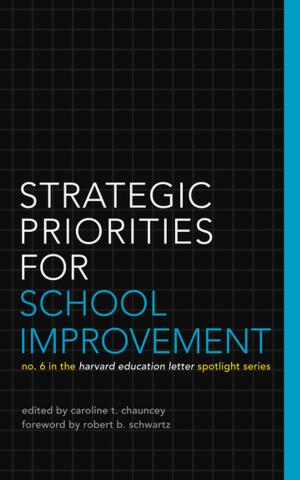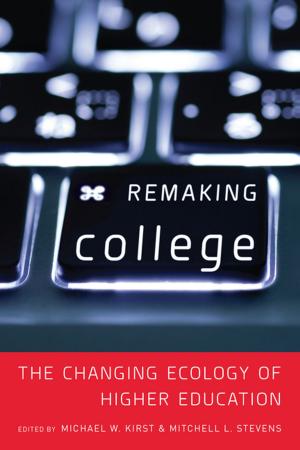Deliberately Dumb: Understanding America's Education Failure
Nonfiction, Reference & Language, Education & Teaching, Educational Theory, Educational Reform| Author: | Donald R. Miklich | ISBN: | 9781311558374 |
| Publisher: | Donald R. Miklich | Publication: | August 12, 2015 |
| Imprint: | Smashwords Edition | Language: | English |
| Author: | Donald R. Miklich |
| ISBN: | 9781311558374 |
| Publisher: | Donald R. Miklich |
| Publication: | August 12, 2015 |
| Imprint: | Smashwords Edition |
| Language: | English |
For decades the learning of students in the USA has been significantly inferior to that of students in almost every other developed nation. This, the public has been persuaded, threatens our national prosperity. Accordingly the federal government has launched massive, and massively expensive remediation programs. Unfortunately, these programs did not begin with scientific investigations into the cause(s) of the problem. Instead, all started with the unexamined preconception that inadequate schools and teachers were necessarily responsible. On the basis of this presumption numerous reformed school programs have been tried. Most claim success, but none has provided scientifically adequate evidence thereof. Since on international comparisons the learning of our children continues as bad as, and perhaps even worse than ever, these success claims are clearly invalid.
The failure of our school and teacher improvements programs to increase our students' learning suggests we should have looked for causes before attempting solutions. The time is long overdue to consider the learning problem and its possible resolutions, not in terms of our naive prejudices, but instead in light of what science knows about schooling and learning. This essay attempts to begin this discussion, but to do so in a nontechnical narrative way in order that everyone can usefully participate, whether or not he/she is educated in science. And what the evidence shows is that schools and teachers do not and can not cause learning. They can only facilitate it. Thus our school and teacher improvement programs are completely misguided, which explains their massive failure.
The cause of our students' inferior learning lies in our students themselves, in all of them. This latter point is vital in understanding the problem. Many assume the learning of only lower classes and minority students is deficient. For our purposes we need not dwell on the bigotry of this. For our purposes we need only note that the facts do not support this assumption. Objective analyses show the learning problem exists across the entire US socioeconomic spectrum. Therefore its cause must be something characteristic of all of us. I suggest it is our widespread and deep-seated attitude of dislike and distrust of academic knowledge, the attitude the historian Richard Hofstadter labeled American Anti-Intellectualism.
Americans, I firmly believe, learn less that persons from other developed nations not because we are less intelligent nor because our schools and teachers are inadequate. We learn less because we do not see any value in learning more. We consider the long hours of study needed to master abstruse academic material to be as impractical as it is unpleasant. Therefore, if the learning of our students is to be improved, it can only be done by programs which address student motivation.
For decades the learning of students in the USA has been significantly inferior to that of students in almost every other developed nation. This, the public has been persuaded, threatens our national prosperity. Accordingly the federal government has launched massive, and massively expensive remediation programs. Unfortunately, these programs did not begin with scientific investigations into the cause(s) of the problem. Instead, all started with the unexamined preconception that inadequate schools and teachers were necessarily responsible. On the basis of this presumption numerous reformed school programs have been tried. Most claim success, but none has provided scientifically adequate evidence thereof. Since on international comparisons the learning of our children continues as bad as, and perhaps even worse than ever, these success claims are clearly invalid.
The failure of our school and teacher improvements programs to increase our students' learning suggests we should have looked for causes before attempting solutions. The time is long overdue to consider the learning problem and its possible resolutions, not in terms of our naive prejudices, but instead in light of what science knows about schooling and learning. This essay attempts to begin this discussion, but to do so in a nontechnical narrative way in order that everyone can usefully participate, whether or not he/she is educated in science. And what the evidence shows is that schools and teachers do not and can not cause learning. They can only facilitate it. Thus our school and teacher improvement programs are completely misguided, which explains their massive failure.
The cause of our students' inferior learning lies in our students themselves, in all of them. This latter point is vital in understanding the problem. Many assume the learning of only lower classes and minority students is deficient. For our purposes we need not dwell on the bigotry of this. For our purposes we need only note that the facts do not support this assumption. Objective analyses show the learning problem exists across the entire US socioeconomic spectrum. Therefore its cause must be something characteristic of all of us. I suggest it is our widespread and deep-seated attitude of dislike and distrust of academic knowledge, the attitude the historian Richard Hofstadter labeled American Anti-Intellectualism.
Americans, I firmly believe, learn less that persons from other developed nations not because we are less intelligent nor because our schools and teachers are inadequate. We learn less because we do not see any value in learning more. We consider the long hours of study needed to master abstruse academic material to be as impractical as it is unpleasant. Therefore, if the learning of our students is to be improved, it can only be done by programs which address student motivation.















